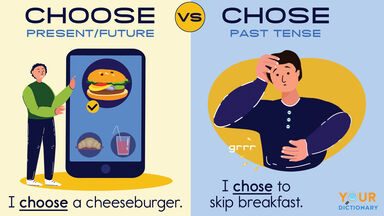Choose The Bear: Making Your Best Selections In Life
Every single day, we stand at countless crossroads, don't we? From the little things, like what to have for breakfast, to the truly big moments, like picking a new place to live or starting a different kind of work, our days are filled with selections. That, you know, is what it means to "choose." It's not just a quick pick; it's a thoughtful process, a moment where you decide what you want from a whole bunch of things or possibilities.
When you "choose the bear," it's kind of a way of talking about those really important decisions, the ones that feel a bit weighty, maybe even a little scary, but they shape your path. It’s about more than just picking something; it’s about making a selection after thinking things through, considering what truly matters to you. This kind of choice often feels like it has bigger consequences, and that’s perfectly natural, you see.
This article will help you get a clearer picture of what it means to choose, how to talk about choices you’ve made, and how to approach those "bear" sized selections with more confidence. We will, in some respects, look at the very core of this powerful word and its different forms. It's all about making good selections for your own life.
- Rst Diesel Performance Reviews
- Sexualidad Hombre Y Mujer
- Meep Meep Car
- Can Chickens Have Watermelon
- 86 Season 3
Table of Contents
- What "Choose" Truly Means
- "Choose" vs. "Chose": Getting the Tenses Right
- The Art of "Choosing the Bear"
- Why Your Choices Matter
- Practical Tips for Better Choosing
- Frequently Asked Questions About Choosing
What "Choose" Truly Means
The word "choose" is a verb, and it means to select something from a group of possibilities or to decide on a course of action. It's about picking what you want from two or more things. For example, you might choose a blue shirt over a red one, or you might choose to take a walk instead of watching television. It’s a very active word, you know, showing that you are making a decision.
More Than Just Picking
When we talk about choosing, it’s often more than just a random grab. It means selecting freely and after some thought. It involves making a decision or figuring out a preference among the things you could pick. You are not just picking; you are making a conscious selection, which is a bit different, naturally.
Think about it this way: if you have a bowl of candies, and you just reach in and grab one, that’s more like picking. But if you look at all the different kinds, consider which one you like best, and then take that specific one, that’s choosing. It’s a process that involves a little bit of consideration, you see, and that’s important.
The Thought Behind It
To choose something suggests that you've thought about a number of possibilities and picked one because it seems better than the others. It’s about deciding what you want, perhaps even what you desire, over other options. This thought process is a big part of what makes choosing different from just selecting. It’s about the reason behind your pick, really.
For instance, if you are planning a trip, you might choose a destination after looking at several places, thinking about what you want to do, and considering your budget. That’s a thoughtful selection, isn’t it? It’s not just a snap judgment; it involves a bit of planning and consideration, so it’s pretty involved.
"Choose" vs. "Chose": Getting the Tenses Right
Getting the right verb tense can sometimes feel a bit tricky, but with "choose" and "chose," it's fairly straightforward once you get the hang of it. "Choose" is the present tense form of an irregular verb, while "chose" is its simple past tense. Knowing when to use each one really helps your writing and speaking sound clear, you know.
The Present Moment: "Choose"
"Choose" is what you use for actions happening right now, or for things that happen regularly. For example, "I always choose the window seat on an airplane." Or, "Today, I choose to be happy." It’s about the act of selecting in the current moment, or a habit of selecting. This is, basically, how you talk about what you are doing now or what you usually do.
When you are talking about something you are about to do, or something you do as a matter of course, "choose" is the word you want. For instance, "Every morning, she likes to choose her outfit carefully." It shows a current or ongoing action, which is pretty clear, isn't it? It's about the decision happening now.
Looking Back: "Chose"
When you are talking about a selection that has already happened, you use "chose." This is the simple past tense of "choose." For example, "Yesterday, I chose the window seat." Or, "She chose July for her wedding last year." It tells us that the selection was made at some point in the past, and it’s over with, you see.
So, if you are telling a story about something that happened before, you would say, "He chose the red car when he bought his first vehicle." It marks the action as completed in a prior time. This distinction is, in fact, quite important for making your sentences grammatically correct and easy to follow.
Other Forms: "Choosing" and "Chosen"
Beyond "choose" and "chose," there are other forms of this verb that you will often see. "Choosing" is the present participle, often used with "is" or "are" to talk about an ongoing action, like "I am choosing my words carefully." It shows something in progress, which is, honestly, a common way to talk.
"Chosen" is the past participle, and it's used with "has," "have," or "had" to form perfect tenses, or as an adjective. For example, "She has chosen her path." Or, "This is the chosen one." It implies a selection that has been made and its result, you know, a completed act with lasting effect.
Why "Choosed" Is Not a Word
You might wonder why we don't say "choosed" for the past tense, like we say "walked" for "walk." The simple reason is that "choose" is an irregular verb. Irregular verbs don't follow the usual pattern of adding "-ed" to form their past tense. They have their own unique forms, which is just how they are, really.
So, while it might seem logical to say "choosed," the correct past tense is "chose." It’s a bit like "go" becoming "went," or "eat" becoming "ate." These verbs just have their own rules, and with practice, you’ll master choosing the correct verb tense every time, which is pretty neat, isn't it?
The Art of "Choosing the Bear"
When we talk about "choosing the bear," we're really talking about those significant moments in life where the decision feels particularly weighty. It’s not about an actual bear, of course, but about a big, perhaps challenging, selection that feels like it could have a lasting impact. These are the choices that often make us pause and think, you know, a lot.
It could be a career change, a move to a new city, or even a big personal commitment. These are the selections that require more than just a quick thought; they demand real consideration and sometimes, a little courage. It's about deciding to do something that feels substantial, something that matters quite a bit.
When Big Decisions Appear
Big decisions, or "bears," appear at different times for everyone. They can pop up unexpectedly, or they might be something you’ve been thinking about for a while. When one of these big choices comes along, it’s natural to feel a mix of excitement and perhaps a little bit of worry. That, in fact, is part of the process for most people.
These moments are opportunities to truly shape your path. They ask you to look at your options, think about what you want for your future, and then make a firm selection. It’s a chance to decide on a course of action that aligns with your deeper desires, which is a pretty powerful thing, if you think about it.
Steps for Thoughtful Selection
Approaching a "bear" choice with a bit of a plan can make the process feel less overwhelming. It’s about taking your time and giving the decision the attention it deserves. There are, basically, a few simple steps that can help you make a selection that you feel good about, even when things seem a little uncertain.
The idea is to break down the big decision into smaller, more manageable parts. This way, you can look at each aspect carefully and feel more in control of the situation. It’s about making a selection that feels right for you, and that takes a little bit of effort, you know, a thoughtful approach.
Weighing Your Options
When you face a big choice, it helps to list out all your possibilities. What are the different "bears" you could choose? For each option, think about the good parts and the not-so-good parts. This is like making a mental (or even a written) pros and cons list. It helps you see things clearly, which is, actually, quite useful.
Consider what each option might bring into your life. Will it make things easier or harder? Will it bring you closer to what you want, or take you further away? Really looking at each possibility, just a little, helps you understand the full picture before you make your pick.
Considering What You Want
Before you make a big selection, take some time to think about what you truly want and desire. What are your goals? What are your values? Your choice should, more or less, line up with these things. If you pick something that goes against what you believe in, it might not feel right in the long run.
This step is about connecting with your inner preferences. It’s about deciding what you prefer or want over other things. Knowing what truly matters to you will guide your decision, making it feel more authentic and personal, you know, like it really comes from you.
Looking at the Future
Try to imagine what your life might look like after you make each choice. What are the possible outcomes? While you can’t know everything for sure, thinking about the future can help you anticipate some of the effects of your decision. This helps you choose a course of action with more awareness, you see.
It's about considering the potential long-term impacts, not just the immediate ones. Will this selection open up new doors for you, or perhaps close some others? Thinking ahead, even just a little, gives you a fuller picture of what you are choosing, which is pretty smart, isn't it?
Why Your Choices Matter
Every selection you make, big or small, contributes to the story of your life. Your choices are powerful tools that help shape who you are and where you are going. They are, essentially, the building blocks of your experiences and your future. That, in fact, is why understanding how to choose well is so valuable.
When you learn to choose thoughtfully, you gain a greater sense of purpose and direction. You become more active in creating the life you want, rather than just letting things happen to you. It's about taking the reins, which is a very empowering feeling, you know, to be in charge of your own path.
Shaping Your Path
Your choices are like steps on a path. Each step takes you in a certain direction. When you choose, you are deciding which way to go. Over time, these individual selections create the overall journey of your life. It's how you get from one point to another, really, shaping your experiences along the way.
If you consistently make choices that align with your goals and desires, you'll find yourself moving towards the life you envision. Even small choices, when added up, can lead to big changes. It's about making selections that move you forward, which is pretty important, wouldn't you say?
Building Confidence
When you make a choice, especially a thoughtful one, and you see positive results, it builds your belief in yourself. Each time you successfully choose something that works out, you gain more confidence in your ability to make good decisions in the future. This, quite frankly, is a wonderful feeling.
Even if a choice doesn't turn out perfectly, learning from it helps you grow. It teaches you more about what works for you and what doesn't. This process of choosing, reflecting, and learning makes you stronger and more capable, which is, arguably, one of the best outcomes.
Practical Tips for Better Choosing
Making good selections is a skill, and like any skill, it gets better with practice. There are some simple things you can do to improve how you approach choices, whether they are small daily picks or those big "bear" decisions. These tips can help you feel more at ease with the process, you know, more in control.
It’s about developing a habit of thoughtful consideration rather than rushing into things. By taking a moment to pause and think, you can often avoid choices you might later regret. This approach is, basically, about being kind to your future self by making smart selections today.
Understanding Your Preferences
Take some time to really think about what you like and dislike. What makes you happy? What causes you stress? Knowing your own preferences helps you make choices that fit your personality and lifestyle. This self-awareness is, in fact, a very strong tool for making good decisions.
For example, if you know you prefer quiet evenings at home, you might choose a less social activity over a big party. Understanding these personal leanings makes the act of choosing much simpler and more satisfying. It's about picking what truly works for you, which is pretty sensible, isn't it?
Learning from Past Selections
Look back at choices you've made in the past. What went well? What didn't? What did you learn from those experiences? Every choice, good or not so good, offers a chance to learn. This reflection can help you make better selections in the future. It’s about using your history to guide your next steps, you know, very practically.
If you chose a certain path before and it didn't lead where you hoped, you can use that knowledge to pick a different direction next time. This continuous learning process is, honestly, a key part of becoming a better decision-maker. It’s about growing with every choice you make.
Practice Makes It Easier
The more you practice making thoughtful choices, the easier it becomes. Start with small decisions, like what to read or what to cook. As you get better at these, you’ll feel more ready to tackle the bigger "bear" choices. It’s like building a muscle; the more you use it, the stronger it gets, which is, obviously, a good thing.
Don't be afraid to make a choice, even if it feels a little uncertain. The act of choosing itself is valuable. You'll gain confidence with each selection, and you'll become more skilled at weighing options and determining what is best for you. Learn more about decision-making on our site, and link to this page for more insights on personal growth. You can also find more general information about decision-making on a site like Verywell Mind, which is a great resource.
Frequently Asked Questions About Choosing
People often have questions about how to make selections, especially when they feel big or important. Here are some common thoughts and answers to help you feel more confident in your choices.
What is the main difference between "choose" and "select"?
"Choose" often implies a more personal preference or a decision made after consideration, especially from a range of options. "Select," while similar, can sometimes suggest a choice made for fitness or suitability, like selecting the proper tool for a job. Both mean to pick, but "choose" tends to carry a bit more of that personal thought behind it,



Detail Author 👤:
- Name : Gretchen Botsford
- Username : rbernhard
- Email : mkohler@smith.info
- Birthdate : 1999-06-22
- Address : 633 Ona Tunnel Port Joeytown, ID 28530-7043
- Phone : +1-757-885-1757
- Company : Smith and Sons
- Job : Electronics Engineer
- Bio : Et cupiditate voluptates asperiores qui et. Saepe et expedita hic ducimus ea. Qui sint ratione quae quia eum. Omnis non ad vero et atque non neque rerum.
Socials 🌐
facebook:
- url : https://facebook.com/sibyl_upton
- username : sibyl_upton
- bio : Delectus omnis doloribus nulla adipisci sint odio.
- followers : 6237
- following : 1835
linkedin:
- url : https://linkedin.com/in/sibyl3724
- username : sibyl3724
- bio : Et velit quam repellat iusto illo nesciunt dolor.
- followers : 5846
- following : 1168
twitter:
- url : https://twitter.com/sibyl_upton
- username : sibyl_upton
- bio : Corporis rerum vitae omnis fuga dolorum. Culpa recusandae vero quisquam qui officiis fugiat dolorem. Enim omnis deserunt et iusto ullam ea.
- followers : 4087
- following : 2488
tiktok:
- url : https://tiktok.com/@sibylupton
- username : sibylupton
- bio : Natus expedita molestias ut doloremque omnis ut.
- followers : 6173
- following : 655
instagram:
- url : https://instagram.com/upton2012
- username : upton2012
- bio : Voluptatem vitae aspernatur non odit aut cupiditate sunt. Dolorem autem dolor suscipit quia.
- followers : 1618
- following : 2277